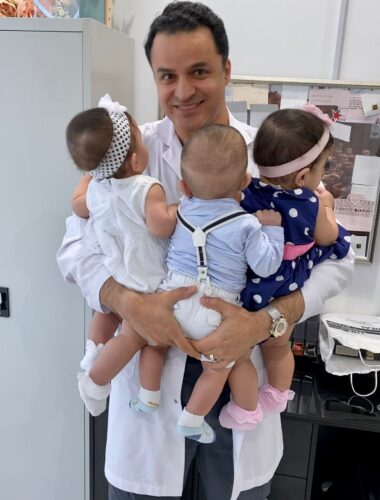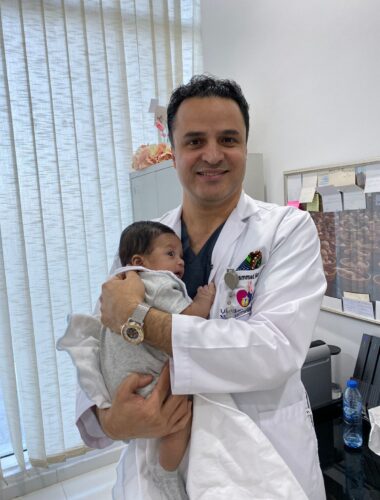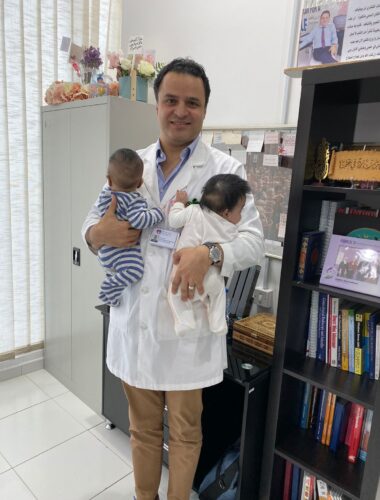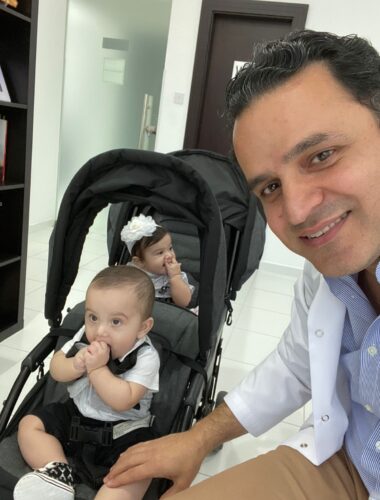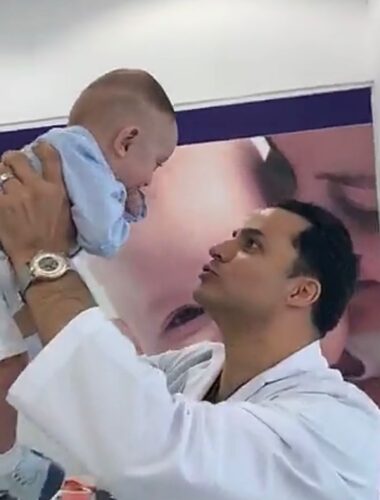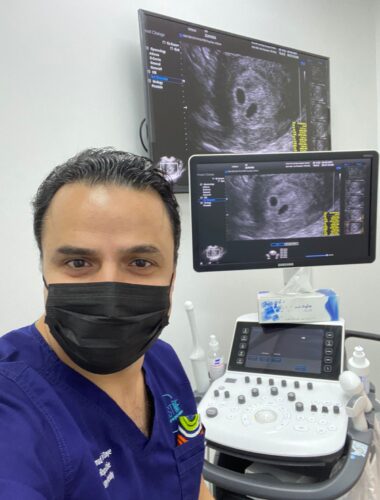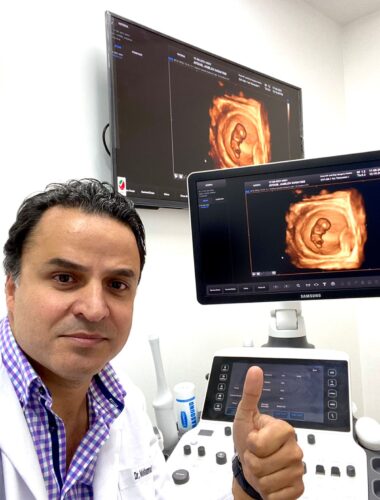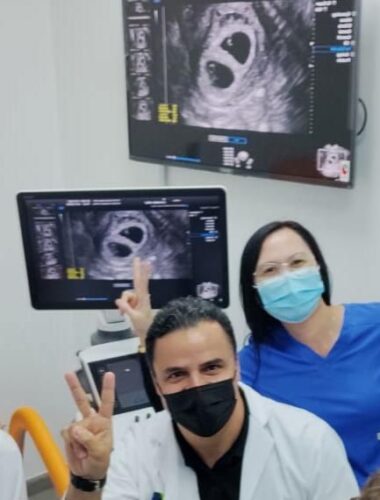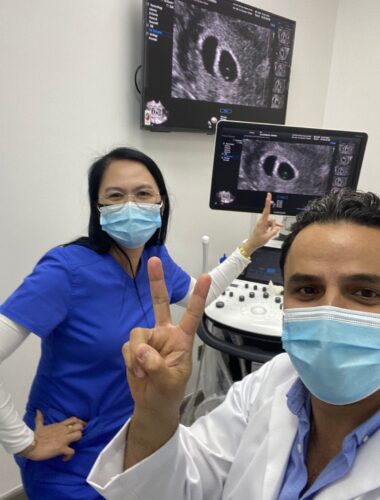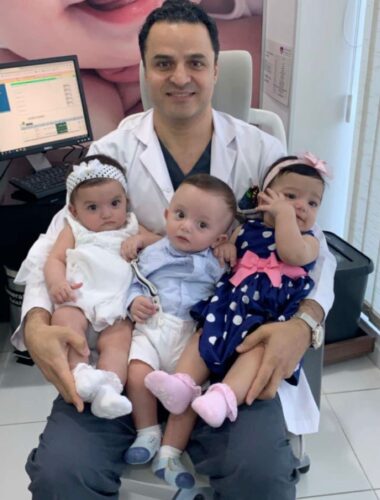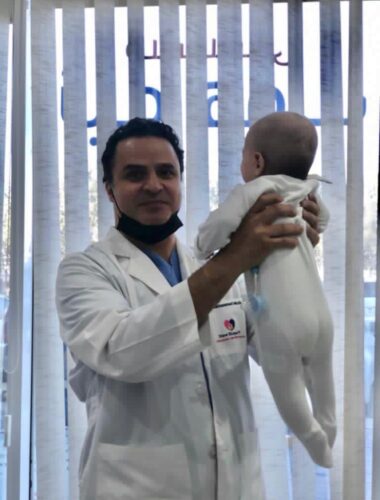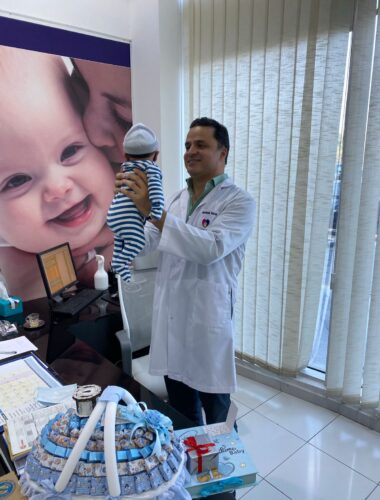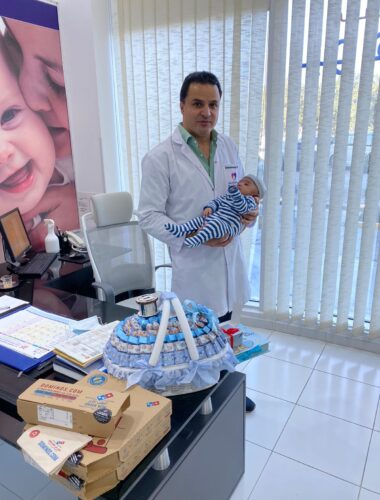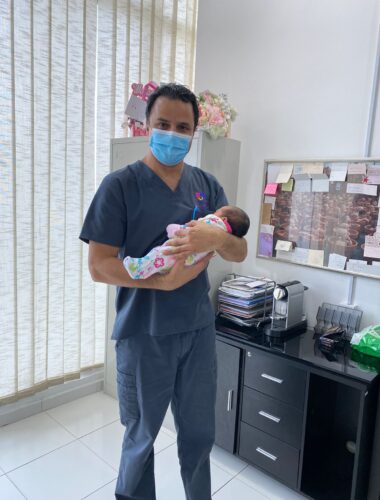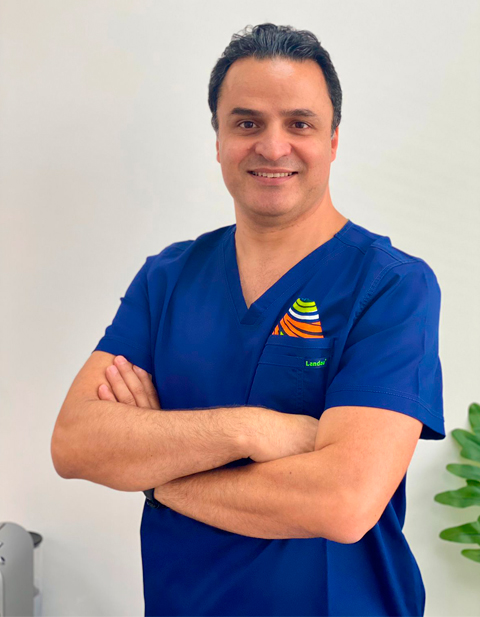
Dr. Muhammad Mazen Dayeh
Reproductive Endocrinology and Infertility Specialist
Phone:+971 56 285 6706
Email:drmazen@bestivf.ae
Languages:Arabic, English, Russian
Overview
Dr. Muhammad Mazen Dayeh is a top fertility expert. He completed his Primary Medical Qualification (PMQ) from Saint Petersburg I.P. Pavlov State Medical University in Russia and acquired his specialty training and Ph.D. at Russian Academy for Medical Sciences. He is considered a Consultant of both OB/GYN and Reproductive Endocrinology/Infertility. His special interests lie both in male and female infertility, Reproductive Immunology, and Recurrent Implantation Failures. He is recognized for his expertise in treating and evaluating infertility and recurrent pregnancy losses, IVF, and laparoscopic surgical techniques. Currently, he is performing over 600 IVF cycles per year.
Dr. Dayeh is a passionate and empathetic physician with 20+ years of experience in classical gynecological and fertility-related procedures, including surgeries, plastic surgery, and stress incontinence surgery. In addition, he provides obstetric services to maintain continuity of care during pregnancy. He is fluent in English, Arabic, and Russian, and his multicultural background has equipped him to be culturally sensitive and extra caring with all his patients.
He is committed to helping his patients feel at ease through informed, shared decision-making so that they can undergo successful treatment and experience the joy of parenthood. Patients value his medical expertise, individualized treatments, and the emotional support he provides them.
Dr. Mazen: Giving a Helping Hand to Other People’s Destiny
Fertility specialists, obstetricians-gynecologists, neonatologists are those that ask themselves the philosophical questions of what role do they play in the fate and fortunes of other people. Do they attempt to play the role of the Almighty? Dr. Daye Muhammad Mazen, the best fertility specialist in the United Arab Emirates has no doubts that helping families to have children is a noble act that is pleasing to God. This experienced Reproductive Endocrinologist from the United Arab Emirates practices at Best Life Fertility Center in Sharjah. In his column, he talks about how he manages to achieve success together with his patients in 70 out of 100 case
Once my dad drove me to school. I was 5 then. On the way we were discussing the most important issues about life. At that moment he said that he would like me to become a medical doctor, and not a military man, like he was. His words helped me to choose my way and taught me to love what I do today. It is a job that is all about helping people and learning new things, because a doctor can never stop learning.
When you study medicine, you need to understand what medical field is the best for you. I have always loved surgery – I just had to choose the area. I am sympathetic towards good family values and the desire to have children. And obstetrics and gynecology are the specialties that combine both surgery and fertility subjects. The most important thing in family life is the birth of a child. And the idea of helping people with this has always attracted me. After I started practicing obstetrics and gynecology, I decided that I would choose specifically reproductive medicine. Since then, I have loved to be involved in it, to develop constantly, to study all new things.
After I graduated, acquired a profession, and underwent residency training, I decided to turn to the study of minimally invasive medicine and attain a Ph.D. on this subject. The focus of my study was the idea of not removing the reproductive organs of women who suffer from some kind of disease. The dissertation was devoted to studying the impact uterine fibroids treatment has on women who would like to give birth again.
Nowadays, infertility statistics are different from previous figures. If you read the old literature, delay of pregnancy occurred in one case out of 10. But in fact, the figure is much larger – one couple out of six. In the past, people consulted less with their doctor, and many people delayed seeking advice, which is why we did not know the real figures.
Now more people seek doctor’s advice and we now know the male and female factor is 50/50 ratio. People know there are methods of treatment, but it depends on your lifestyle. In countries where it is popular to have a healthy lifestyle, the figures are better, and where it does not exist, infertility is more common. Ecology, environment, industry, and quality of food are the factors that affect fertility.
The most difficult thing in the work of every fertility specialist is that their patients always cry. Those who become pregnant are crying for joy, and those who did not succeed are lamenting their fate. When I perform IVF and it does not result in pregnancy, it again begins the daily struggle to find out the reason for failure. This is an interesting job, in particular because there are more than 100 nationalities in the Emirates who live on one piece of land. Everyone has their own character, mentality and understanding of the issue of how to treat and what should be done. Every new day brings a new challenge, and the doctor faces a difficult task – to adapt and, using all his or her abilities, help everyone.
There are issues that are interpreted incorrectly by many people. For more than 20 years working with Muslim families in different countries, including in Europe, has revealed that there is no such religious dogma that would forbid people to see a doctor or force them to choose their doctor based on his or her gender. The gender of the doctor does not matter. I profess Islam, but I see women of different beliefs who, for personal reasons, may prefer a female or a male doctor. But in the end, everyone understands that success and efficiency of treatment are much more important. This is especially true in the Emirates, where for almost 10 years of work there were only 2 or 3 such patients out of 10 thousand. The Islamic world has never denied the fact that different methods are used that help conception. Only ovum and sperm donation are prohibited. It is encouraged that the people who are officially married seek medical assistance and do IVF with their cell pairs to conceive children. This is nothing but supported because it strengthens the family institution.
My personal statistics estimate about 600 cycles per year for 15 years – that’s 10 thousand IVF protocols. More than three and a half thousand children were born this way, and we have also helped more than 20 thousand patients using other means such as insemination, treatment of ovulation, and super ovulation of the ovaries.
I Believe That Regardless of Planning Pregnancy or Marriage.
I believe that regardless of planning pregnancy or marriage, every woman closer to 30 should consult a fertility specialist. It is equally important for single and married women to understand their ovarian reserve, and to hear forecasts from the point of view of reproductive medicine. 12 months is the period when, in the absence of pregnancy, you are required to seek a doctor’s advice if you are younger than 30. After you turn 30, you shouldn’t wait a year. Even if the woman is not married, fertility preservation is done so as not to wait for ovarian reserves to reduce. I emphasize that at the age of over 35, this process begins to occur much faster.
Earlier, life priorities of people used to be different: at first you had to get a good education, have your house built, become fully prepared to create your own family. But as the quality of life started to improve, many began to realize that having children earlier is better. The level of awareness reduces the fear to say honestly that this problem exists. All the issues, including erectile dysfunction vaginismus, began to be discussed more freely, and more people seek doctor’s advice because it is obvious to everyone that there are methods that help.
Any sort of couple examination begins with the man. The first test is a spermogram. Thus, we exclude 50% of the causes affecting conception. The second step is to study the woman, her menstrual cycle.
Whether it’s regular or not, which reflects the frequency of her ovulation. It can be determined from what the patient says if her ovarian reserve is diminished or there is polycystic ovary syndrome. Then you look at the patency and functionality of the fallopian tubes and evaluate immunological factors. In 15 or 20% of the remaining cases, the disorder has unclear genesis, and then the cause is determined during the IVF process. The quality of the embryos formed for a particular couple is visible under microscope. This includes the state of the ovum and degenerative changes, when there is not a single genetically normal embryo and an inability of the spermatozoa to fertilize in the usual, spontaneous way. But when we choose the best of them to introduce into the cytoplasm of the ovum, then everything works out well.
There are several fertility clinics in the United Arab Emirates. Some of them were established according to certain standards 10 years ago. At that time, it was a good level. Nowadays, opening the clinic, you follow the latest world standards, starting from the quality of the installed equipment to the quality of the air that is cleaned to remove all the factors that can be harmful to embryos (a sterilized room). The monitoring system operates for 24 hours. Being outside the clinic, I am always aware of how each incubator works, what is the temperature and CO2 level there.
Every Woman Closer to 30 Should Consult a Fertility Specialist
If something goes wrong, the equipment protects embryos, including the frozen ones, from damage. There is a so-called double witness system, which is the system of trust that gives our patients confidence that there will be no mistakes. Double witness takes place with the help of monitoring and staff. Computer programs that recognize the material of each patient and her husband are controlled by the authorized staff. The efforts of the most experienced staff (possessing from 10 to 25 years of experience) are multiplied by the best advanced equipment.
The procedure starts from the first visit: the patient comes, we discuss and choose treatment protocol depending on the case. Everything does not happen right away, because the woman has to prepare and comes on the day when we start ovulation stimulation – this is the 2-3rd day of the cycle. With good response and number of ova on the 12-13th day, we take them with the help of follicular puncture. On the same day, fertilization takes place in the laboratory. The fertilization method is chosen depending on the case. It can be Conventional IVF or the ICSI method, when the spermatozoon is selected and injected into the cytoplasm. We observe the embryos growth up to the 5th day – up to the blastocyst stage. We can transfer if the situation allows. Sometimes we freeze all the embryos so that the woman can rest (this is patient-friendly protocol), or we do genetic analysis of the embryo. Thus, we get a high percentage of pregnancy – about 70%.
If the embryos are of good quality (AA, AB, BB), their gender is known and the woman can choose which gender of the child she would like to have. As for quantity, here I usually advise one, because it is much safer for the woman and for the child. Multiple pregnancy is considered to be a high risk form of pregnancy, because it may result in early delivery, require incubation, observation, immunity will be reduced, and lower brain maturation.
Today there is a new AMH test, which shows the number of ovum within the ovary. But it does not show quality, so you should not fully rely on the results of this analysis. For 1 fetus, 1 spermatozoid and 1 ovum are enough. It happens that out of 5 cells, according to the results of genetic analysis, only one is healthy. But this particular cell successfully makes the way from embryo to child. I believe in the power of science and I am constantly learning, but sometimes life surprises us with miracles. Therefore, I always say that everything is the will of the Almighty and everything happens in the right time. Never give up, never lose your faith – everyone has his or her own destiny.
Memberships
Syrian Medical Society, Syrian Society of Obstetricians & Gynecologists (2006)
The Russian Association of Human Reproduction
American Society for Reproductive Medicine (ASRM)
European Society for Human Reproduction and Embryology
Education
Saint Petersburg I.P. Pavlov State Medical University, Russia (Primary Medical Qualification - PMQ)
Russian Academy for Medical Sciences, (Specialty Training and PhD)
